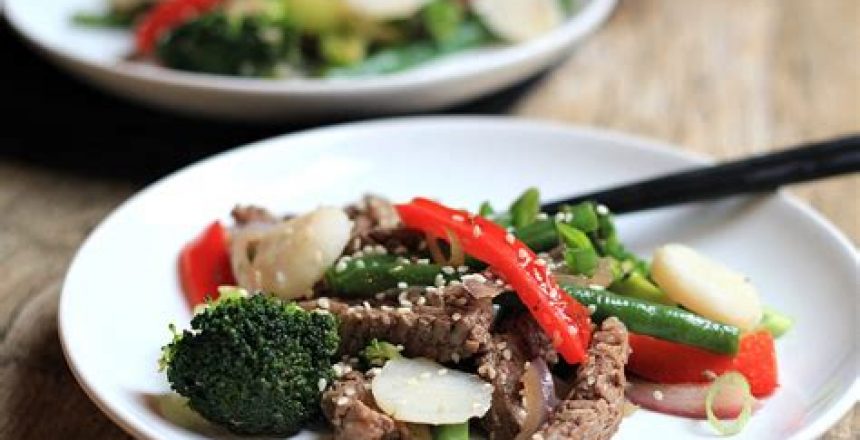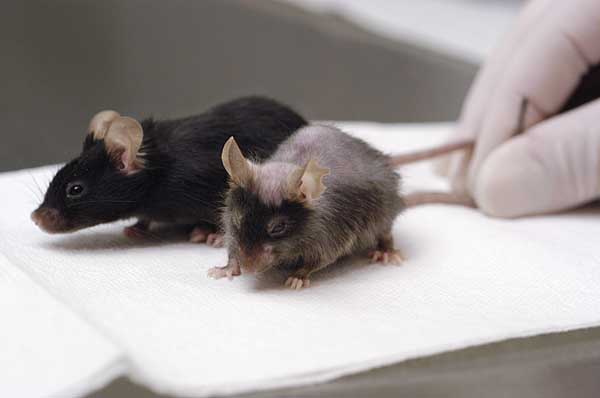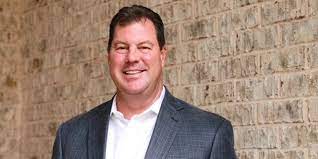Why are so many people so overweight or obese? Why are so many people trying, unsuccessfully, to lose weight? If you can answer those questions correctly, then you can lose weight and then stay lean and trim. Read on for how to lose weight, really.
Two big mistakes in weight loss
The two biggest mistakes in weight loss are:
- Calories in, calories out determines weight loss.
- You can exercise body fat away.
Calories in, calories out
On the most basic level, this statement has some truth. If you don’t expend more calories than you take in, you won’t lose fat.
But that’s like saying your house burned down because it was ignited. Ignition is a necessary condition of your house burning down; the question is how to prevent your house from being ignited. It confuses an ultimate cause with a proximal cause.
In weight loss, the question is how to expend more calories than you take in.
Voluntary reduction of calories, aka a “reducing diet”, has been repeatedly shown to fail. Doctors commonly tell their patients to eat less. If that worked, no one would be overweight.
Hormones control the amount of fat that you carry on your body. Insulin, leptin, and adiponectin regulate body fat, and even your gut microbes play a role; two ways they do this is by regulating hunger, and regulating metabolism.
If you voluntarily reduce your calorie intake, you get hungry, and/or your metabolism declines. You then either eat more because you’re hungry, or expend less energy because your metabolism declined. Either way, you’re still taking in more calories than you expend.
Hunger always wins in the end, as few people can withstand it. Or even if you can, your metabolism – the rate at which you burn calories – declines, and weight loss stops. Hormones do this.
The key is to reduce hunger, so that you easily reduce the amount of calories that you consume.
You do that with a low-carbohydrate diet with no processed foods.
Processed foods contain refined carbohydrates (flour mainly), sugar, and seed (vegetable) oils, all of which interfere with your body’s weight-regulating mechanism. Don’t eat fast food or junk food, ever. The best policy is to eat nothing that comes in a box or bag or that has seen the inside of a factory or fast-food restaurant.
Eat whole, unprocessed foods, like meat, fish eggs, vegetables, maybe a little fruit (careful, fruit contains sugar), cheese. Prepare your own meals.
Exercise
Exercise is another way you can allegedly increase caloric balance in your favor. But that doesn’t work too well either. The reason is the same as for voluntarily reducing calories: exercise makes you hungry.
Don’t get me wrong: exercise is a uniquely healthy activity, and everyone should exercise to the best of their ability. Being fit lowers the risk of death dramatically.
But exercise is just not very effective for weight loss.
When you exercise, you get hungry, and it’s almost trivially easy to consume more calories than you burned during exercise. Not only that, exercise doesn’t even burn that many calories. Treating yourself at Starbucks after the gym, or even eating a protein bar, will negate any progress in calorie-burning you made.
Big Food wants you ignorant and to blame yourself
It’s very common to see overweight people in the gym or the park trying to exercise away their excess fat, and judging by their results, it’s not working. Going from what I see others eat, I’m sure they’re not making sustainable dietary changes.
Unfortunately, most people believe that exercise is the key to weight loss. Why is that?
In part, because Big Food tells them so.
Companies that make processed food want you to believe that exercise is more important than food in weight loss and obesity. Food companies spend hundreds of millions of dollars on advertising campaigns in a process dubbed “lean-washing”.
By promoting the idea that exercise is the key to weight loss, they take away the blame from their junk foods and put the blame on you. If you can’t lose weight, they say, you’re not trying hard enough, or you’re just lazy.
The fitness industry isn’t innocent here either. Gyms, fitness magazines, and trainers perpetuate the notion that you need lots of exercise to lose weight. They can sell more of their products and services to overweight people by promoting the idea that you need them to lose weight.
How to lose weight, really
First of all, when we talk about weight loss, we really mean fat loss. You should always avoid muscle loss, which is unhealthy and unfortunately a common by-product of trying to lose fat. To avoid muscle loss, you should lift weights and get adequate dietary protein.
To actually lose the fat, avoid all processed foods, which contain large amounts of refined grains, sugar, and seed oils. Cut your carbohydrate intake.
Weight loss on an unrestricted low-carbohydrate diet vs a calorie-restricted low-fat diet. Yancy, William S., et al. “A low-carbohydrate, ketogenic diet versus a low-fat diet to treat obesity and hyperlipidemia: A randomized, controlled trial.” Annals of Internal Medicine 140.10 (2004): 769-777.
Note the above chart, which shows far better results for a low-carbohydrate diet, which was unrestricted in calories.
One of the great benefits of eating low-carbohydrate whole, unprocessed foods is that it reduces your hunger. In trials of low-carbohydrate diets, one thing that’s been seen again and again is that people spontaneously reduce their caloric intake on this diet. That’s one of the keys to the success of this diet right there.
As with building muscle, the key is to have your routine ON LOCK.
Don’t have garbage foods in your house. Prepare your own meals. Don’t eat garbage food outside your house.
Most people won’t do this. Junk food is tempting, and most people give in. They “treat” themselves.
So, while losing fat doesn’t require you to battle your hunger drive, it does require you to have some discipline. You must change your environment so that it’s not obesogenic.
How to lose weight, really
- Ditch processed foods and anything made with flour, sugar, and seed oils. Eat whole, unprocessed food.
- Get adequate protein and do resistance training (aka strength training or weightlifting) to avoid muscle loss.
- Don’t listen to the mainstream – your doctor, dietitians, Weight Watchers – as their approach is known to fail.















22 Comments
Jesus… it is simple but NOT easy for sure.
Is cabbage carbohydrate?
Yes it is, but it has so much fiber that net carbs are negligible. So if you want to eat a low-carbohydrate diet but want cabbage, eat as much cabbage as you like.
I have repeated the experiment about 30 times.
Skied that many seasons in areas with very basic lifts, no groomed runs, demanding terrain, variable quality snow and a lot of side/back country – highly physical skiing.
Ate like a horse, drank like a fish and would still be down on weight by each season’s end.
I can attest that fat can be lost by exercise, albeit that one needs to do a lot of it.
The difference vs town/city/gym exercise/training is the motivation – you WANT to get out there and ski those lines, and exhaustion is a small price to pay.
OK, fair point Gordonsson. I’ll just point out that you ate and drank nearly unlimited amounts, so that does speak to my point about exercise causing hunger. In more comfortable conditions and with less exercise, that might have caused weight *gain*. How to Avoid Marathon-Training Weight Gain – in Runner’s World. If running marathons doesn’t keep the weight off, what will? Of course, there may be something to skiing and hiking cross country: outdoors, cold weather, hormesis, and maybe that it resembles HIIT more than it does steady-state cardio.
Big fan of skiing. When I ski all day, there’s little to no snacking, a limited lunch, and I sleep more due to the exercise. So while I may consume whatever I want, my feeding windows are limited.
It’s possible that it’s not the exercise that causes weight loss so much as the reduced opportunity to ingest calories.
Depends on what kind of food you ate while you were eating like a horse. If you were stuffing your face with junk food (as most people do in every day life) you would not be losing weight. I guarantee you that I can always, always eat more calories than I could ever burn off thru exercise, if I ate the wrong kind of food.
American, this is a good point also for weight lifters. Some people eat junk food after working out thinking it will all add to the muscle mass. You see people write like this at bodybuilder.com’s forum. But a lot of bodybuilders, while strong, have far more body fat than they should have.
Then there are those we can call “crabs”: they work out the arms and chest muscles, nothing else, and eat junk. So they have big arms and chests and the rest looks like crap. Oh boy.
Trail biking is the same, in my experience. Pedaling tricky trails up and down in a forest for whole day, eat as much as i can and still lose weight. I think it’s closer to interval training than cardio.
I do cardio, intermittent fasting and lift weights. While being in perfect health I still wanted to get rid of some fat that I don’t need, so I have been reducing calories to around 1,000-1,100 calories per day, though I eat more on the days when I lift. It works fine, but only because I’m doing the paleo diet – otherwise I’d be constantly hungry. Now I do feel the hunger, but only as a small humming noise, is how I think of it.
The greatest weight-loss food is eggs, to be sure. A boiled egg is about 78 calories, a fried one 100 calories. (And raw, 50 calories.) I make scrambled eggs or eat boiled eggs for one of my two meals per day. But I need meat for the other meal – eating only eggs in a day gets boring. Still, you can eat so much in your egg-only meal, fill your stomach. It’s great. Consider, even if you would eat 10 boiled eggs – which you won’t, I stop at seven – that would be only 780 calories, and you would feel full for the rest of the day. So eggs are definitely a key to my success. I am hoping to reach 10-11% body fat by the end of February, I am steadily approaching that goal.
And as Mangan says, you can’t keep anything in your house that is unhealthy. Me, I eat such things right away. My girlfriend can save candy forever and only have two pieces a day, but most people won’t hold back like that. I went all of last year without ever buying sugar – a New Year’s resolution that I kept. Though I got some sugar from my girlfriend and other sources, but that’s still not as much as it could have been. When you set up a strong “screen” between yourself and the bad stuff like that, it really helps you not to buy it in the store. For those who want to lose weight, it’s still January – you can make a belated New Year’s promise, not to buy any sugar. If you don’t want to go a whole year, try a few months at least. It can be done.
An egg has the same number of calories no matter how it is prepared, Tenet. Raw, boiled, scrambled, fried. Calories might bump up a few if prepared with butter or oil, but not if in a non-stick pan.
There was a guy, was living in a nursing home, that ate 24-30 eggs a day for decades. That’s all. Very healthy.
You seem to miss the point about preparing food. It helps the body absorb calories. “An egg has the same number of calories” is irrelevant when the issue is how many calories the body can absorb from it.
You are correct about “calories in – calories out” being all wrong, but I find that it’s a waste of time trying to argue that with friends who have been brainwashed their whole lives about calorie restriction being the key to weight loss – they will never believe it’s not true. There is no need to even think about calories when you eat a diet of mostly whole, nutrient-dense foods.
It’s actually difficult for me to maintain a steady weight if I lower my carb consumption too much (I will lose weight). So I need to maintain a certain level of carbs in my diet to stay at my desired weight (mostly through eating veggies that are higher in carbs, although I do eat some rice also).
With regard to exercise and weight loss, you are correct there also. The old saying is “you can’t out-train a doughnut”.
This is an off-topic;
I read about your inclinations towards seeing gold as a good store of value and even reasonable investment on Twitter, so I decided to explain why I think this is a fundamentally bad idea:
https://pastebin.com/vwxhjQnq
You’re correct that futures prices have an effect on the gold price, and that energy costs are also important. Ultimately though, futures prices are tied to physical; for example, you couldn’t drive the price of wheat to near zero because people would buy futures contracts, settle in physical, then make bread and sell it at a large profit. Likewise, settle gold futures with physical, then sell the gold on the physical market. As for energy use, that’s actually an argument that Bitcoin proponents make in its favor, so same should apply to gold.
Mr. Mangan, I am interested in your thoughts on flexibility training. It would be interesting if you could cover this topic, as well as to share your own routine (if any) with regards to flexibility and stretching.
I personally don’t belive in post-workout stretching, but I do some stretching separately and the increased flexibility makes me feel healthier and younger. However, iit’s hard to tell how much stretching you should do to optimize health.
I do very little stretching and have difficulty seeing its utility. I touch my toes a few times and stretch against the wall every morning, takes about 30 seconds. But that’s just my prejudice and I could be wrong.
Surely our ancestors stretched to prepare for the big hunt, no? No. Nor do modern hunter-gatherers.
There was a paper published a few years ago that found that those who do stretching before running and other sports actually had more injuries. There are very few activities that go to the limits of our cartilage and tendons. If any.
Mr. Mangan, I really want to get into weightlifting regularly but I seem to be genetically predisposed to lipomas, and I’ve heard weightlifting increases the incidence of lipomas. When I lift, I notice my lipomas more (not sure whether it is a causal connection though). Are you aware of any link between lifting and lipomas?
Bob, I’m afraid I know nothing about that. Since weight training affects muscle, I don’t see why it would cause a lipoma.
Just wanted to thank you here on this and the many prior posts (+ your twitter feed) that has helped me re-assess and fine tune my journey towards aging well. Went from BMI almost breaching 30 to now within spitting distance of sub-25. Love the shade you throw at Soy people and advice too. You and Dr.Peter Attia have been very influential in this journey, esp in helping me realize how wrong and tainted most mainstream health advice is. Thank you so much Mangan!
Shiva, thanks very much!